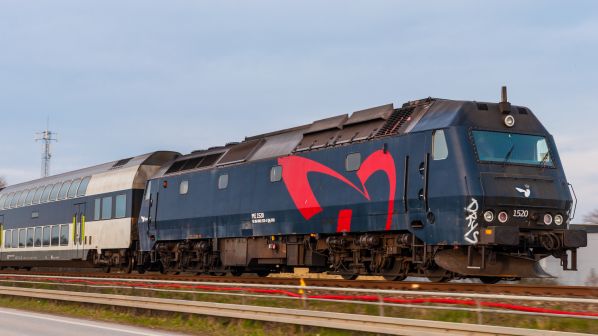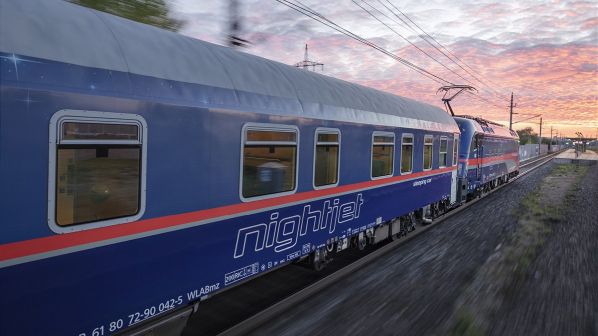THE new 2022 timetable began in most European countries on December 12. But with no major new infrastructure opening on the main trans-European networks, changes are largely confined to domestic services.
International changes
International daytime services see some incremental improvements with Munich - Zürich services accelerated by around 30 minutes to 3h 32min following completion of infrastructure work.
Direct services between Budapest and Berlin via Prague were withdrawn. An alternative route is available with a change of train in Munich although this takes around an hour longer than the previous direct service and full fares are around €60 more expensive. The change is caused in part by large scale engineering work in the Czech Republic and may be reversed in future.
From April, private operator Westbahn will introduce six daily Vienna - Munich train pairs using its new fleet of Stadler Kiss EMUs.
Austrian Federal Railways (ÖBB) will operate a new overnight Vienna - Paris Nightjet service three nights a week and a daily Zürich - Cologne - Amsterdam Nightjet service in partnership with French National Railways (SNCF), Netherlands Railways (NS) and Swiss Federal Railways (SBB).
Domestic changes
In Spain new private operator Ilsa will start its Iryo branded open-access services in the second half of 2022. National operator Renfe has announced plans to increase the number of its competing Avlo low-cost services by also adding new routes.
Renfe’s Barcelona - Toulouse AVE service has been withdrawn while high-speed services to Ourense will be accelerated following the opening of the Galician high speed line on December 21.
In France a new overnight service linking Paris and Tarbes (with seasonal services to Hendaye) begins as the next step in the planned reintroduction of French domestic overnight services.

In Denmark all the remaining ME mainline diesel locomotives were withdrawn on December 11, replaced by new Siemens Vectron locomotives operated as DSB class EB.
Croatian national operator HZ introduced a new timetable on the Zagreb - Zabok route following inauguration of new 25kV ac electrification between Zaprešić and Zabok.
In Poland, a number of new inter-city services were introduced by PKP Intercity, some of these restored inter-city services and direct links from Warsaw to cities which lost these connections in the 1990s, in some cases reopening lines to passenger services. Regional operator Lower Silesian Railways has reopened the line from Wroclaw to Jelcz-Laskowice via Wroclaw Nadodrze but the planned reopening of the longer Wroclaw to Swidnica line has been delayed until later in 2022 due to late running infrastructure work.
In the Czech Republic, RegioJet took over inter-regional services on the Usti nad Labem - Kolin route replacing national operator CD. Several lightly used Czech lines lost passenger services as the sponsoring regional governments withdrew funding.
In Romania national operator CFR Calatori took over operation of some regional services around Timisoara previously operated by private company Regiotrans although CFR withdrew services on several lines elsewhere in the country for economic reasons.

